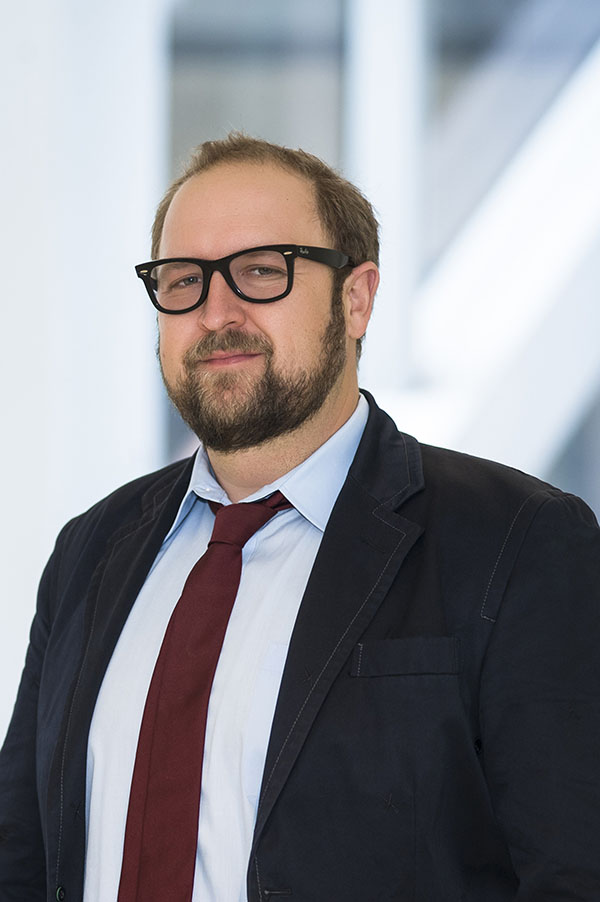Latest News
Research
Twitter chat on Cancer Health Disparities
Dec 3, 2015

Recently, the National Cancer Institute hosted a Twitter chat entitled, “A Holistic Approach to Addressing Cancer Health Disparities.” The discussion focused on accelerating progress in research to address this serious public health issue, and VCU Massey Cancer Center researcher, Andrew Barnes, Ph.D., a member of the Cancer Prevention and Control research program at Massey and assistant professor in the Department of Health Behavior and Policy, weighed in as the moderator posed a series of questions. Below is a recap of the chat. Some of the responses have been slightly altered to provide context that could not fit into the original 140-character tweets. Be sure to follow @VCUMassey on Twitter to keep up with Massey’s latest groundbreaking research and clinical trials, learn about patient and caregiver resources and find out about volunteer and philanthropic opportunities while connecting with others who share similar interests and life experiences.
What are some examples of cancer health disparities? Why is addressing them so important?
Persistent racial, ethnic and socioeconomic disparities exist in detection, prognosis and cancer mortality. The National Cancer Institute’s (NCI) Community Oncology Research Program (NCORP) Minority Underserved community sites are working hard to address the decreased number of minority patients enrolled in clinical trials. For example, African-American women have lower incidence rates of breast cancer but 40% higher mortality, and substantially underutilize genetic testing for breast cancer services.
What are some of the main drivers of cancer health disparities?
Women of low socioeconomic status receive genetic testing for cancer less often due to differences in education, affordability and access. Disparities are due to missed opportunities for better care delivery at every point along the cancer care continuum. There is a critical disconnect between cancer research and equitable diffusion of technologies into cancer care delivery.
What's the evidence that biological differences may influence cancer health disparities?
Recent evidence reclassifies African-American women as having higher risk for developing hereditary breast cancer.
How are clinical trials & related studies being used/changed to bridge the cancer disparities gap?
Access to clinical trials for vulnerable populations is critical to reducing disparities. The NCI’s NCORP is supporting clinical trials focused on cancers more commonly diagnosed in minority populations, including eleven NCORPs (like Massey) that focus on minority and underserved populations.
What is the cancer research community doing to make cancer disparities a research priority?
NCORP supports cancer care delivery research, which studies the impact of providers and organizations on health outcomes. 400 community sites across the US affiliated with the NCI are engaging in cancer care delivery research. NCORP and the cooperative clinical trial groups have committees that are focusing on disparities. NCORPs include reducing cancer disparities as strategic priorities. Community-based participatory research plays a crucial role in addressing cancer disparities.
What are the biggest research challenges to making progress against cancer disparities?
Beyond the hospital and clinic, increasing vertical and horizontal equity in communities will be critical in eliminating cancer disparities.
What are the most important next steps for making rapid progress against cancer disparities?
Increase uptake, understanding of and use of affordable health insurance to reduce cancer disparities.
Where can researchers, advocates, patients/families get more information or get involved to help make a difference?
Advocate with your politicians to reduce cancer disparities. Massey has a “Day on the Hill” with the state legislature every session.
Written by: Melissa Mitchell
Related News
Research
Massey researcher Brian Fuglestad honored with rising star award from drugmaker Eli LillyMay 22, 2025

Get access to new, innovative care
Treatments in clinical trials may be more effective or have fewer side effects than the treatments that are currently available. With more than 200 studies for multiple types of cancers and cancer prevention, Massey supports a wide array of clinical trials.

Find a provider
Massey supports hundreds of top cancer specialists serving the needs of our patients. Massey’s medical team provides a wealth of expertise in cancer diagnosis, treatment, prevention and symptom management.
